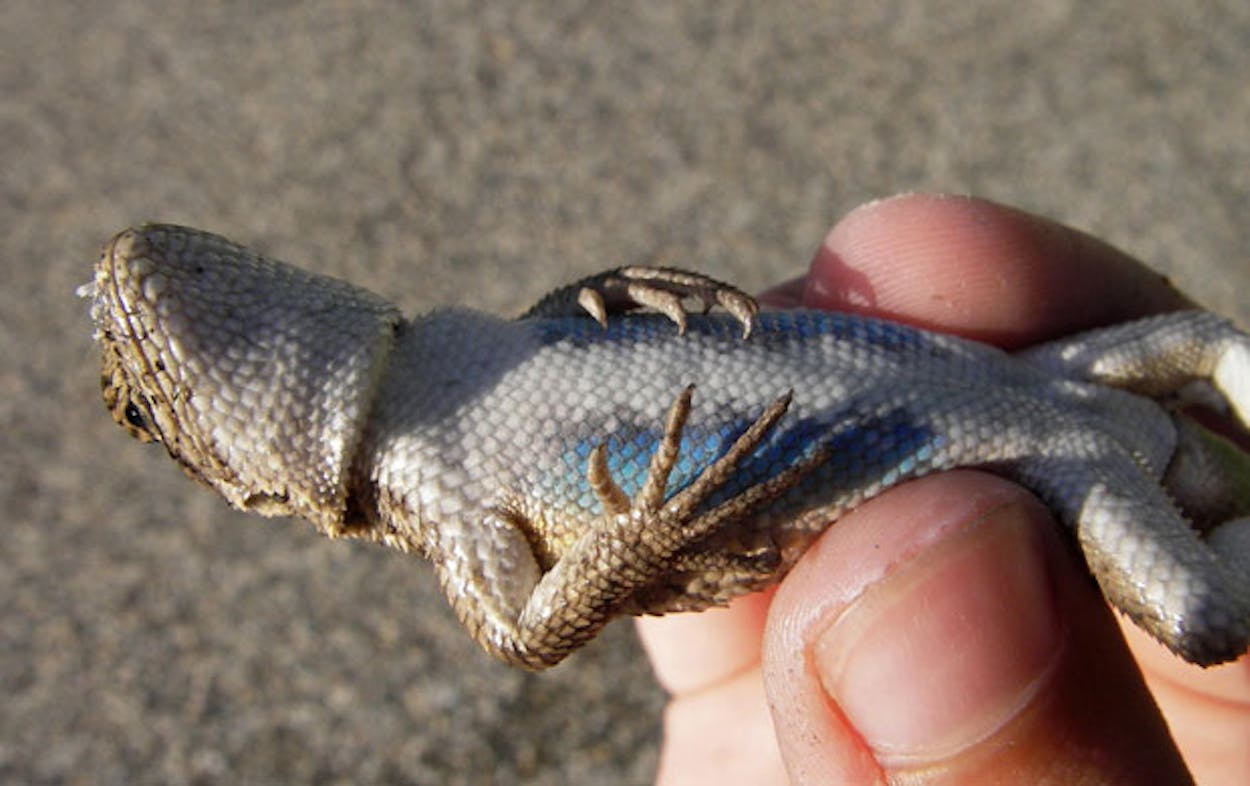The dunes sagebrush lizard—a tiny reptile with a long name—will not be added the the endangered species list, the feds announced Wednesday.
Speaking to reporters in Washington, D.C., U.S. Interior Secretary Ken Salazar stressed that the decision was based on the “best available science” and credited the “voluntary conservation efforts” put in place by landowners in areas that the lizard calls home. the AP reported.
The lizard, which eats bugs, lives only in eight counties in Texas and New Mexico that have shinnery oak, a low-growing shrub where the reptile seeks refuge. This habitat thus overlaps with the oil-rich Permian Basin.
Representatives of the energy sector had been worried that adding the lizard to the endangered species would have curtailed drilling activities in the area. This decision removes “a potentially significant obstruction for the West Texas oil boom,” the Texas Tribune‘s Kate Galbraith wrote.
Texas Republicans were heartened by the news. “After visiting the Permian Basin the Administration no doubt saw firsthand the real, dire consequences that listing this species would have had for Texans and our nation’s energy production,” U.S. Sen. John Cornyn said in a release.
“This is a huge win for the Texas economy,” Comptroller Susan Combs told Galbraith. “It’s a huge win for private property rights, and I think it’s a big win for [the] species.
But the decision left environmentalists smarting. The Center for Biological Diversity slammed the Obama Administration for caving to pressure from the oil and gas sector. “This decision by the Obama administration to toss aside the Endangered Species Act and bow to the wishes of the oil and gas industry is not only bad news for this rare lizard but sets a dangerous precedent for other declining species,” Taylor McKinnon with of Center for Biological Diversity said in a release.
“There is no guarantee the agreements will ever be implemented or that they would be effective at saving the lizard from extinction, particularly once the threat of Endangered Species Act protection has been removed,” the press release continued.







